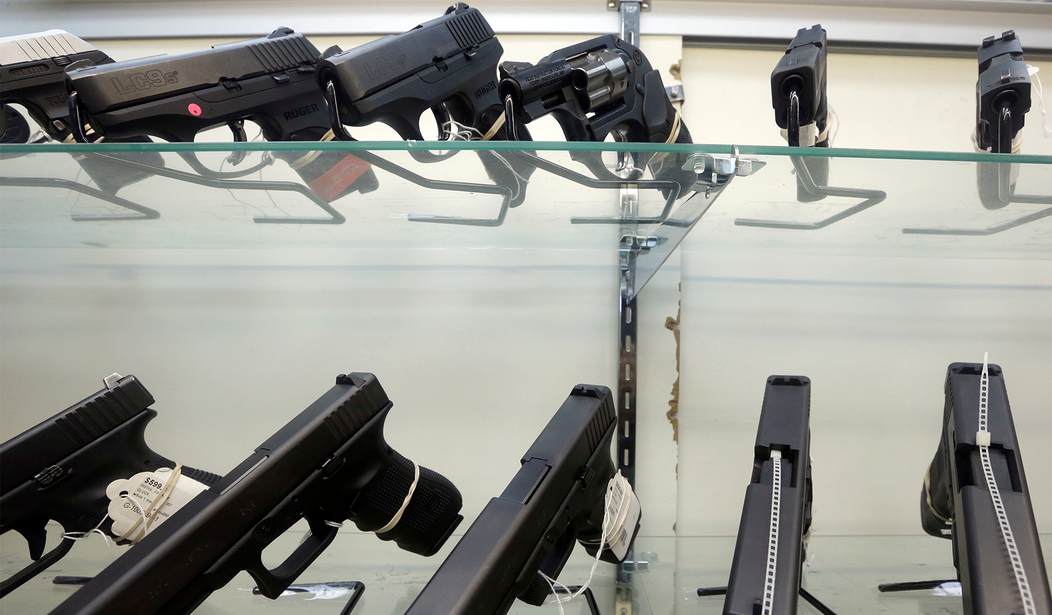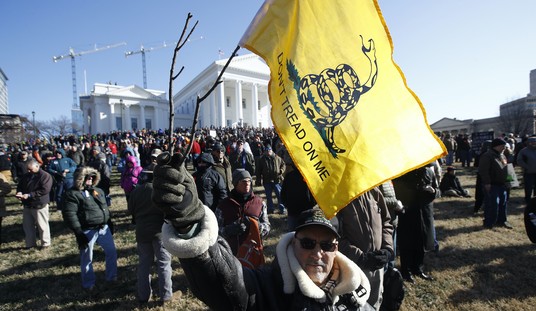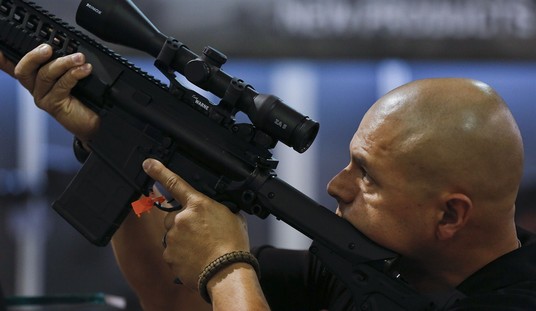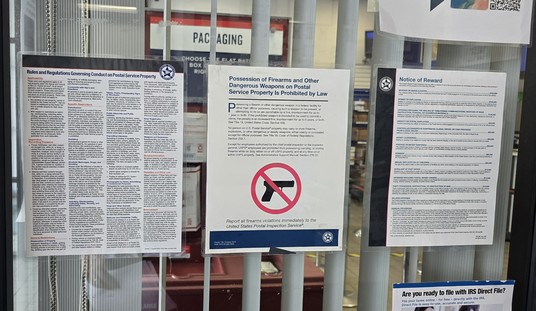Slate is never going to be a pro-gun publication, at least not in my lifetime.
It was founded with a leftward lean and it's doing absolutely nothing to mitigate that. They're at least more honest about it than CNN or the New York Times.
So when I saw they were talking about the increase in mass shootings, I cringed. I also clicked because I just knew we'd get some good stuff to write about.
And, surprisingly, the first thing I saw was actually pretty important. See, they spoke with James Allen Fox, who apparently manages the mass murder database for USA Today, Northwestern University, and the AP.
It's a decent database that's far superior to others typically touted by the media such as the Gun Violence Database.
And he starts off by addressing something important.
It is true that we have more mass killings in this century than last, although we did have some very large-scale ones before. We had 23 people killed at a restaurant in Killeen, Texas [in 1991], and 21 killed at a McDonald’s in California [in 1984]. We did have them, but they didn’t quite get the same attention as they do now, partially because of the fact that they weren’t covered live; there were no satellite trucks beaming images as they unfolded.
But we do have more mass killings happening now, partially because we have a larger population. So keep that in mind. They’re increasing but still rare—both can be true.
In terms of mass killings, we have had 22 this year, which is more than we’ve had in other years. A little bit more, not greatly more than we’ve had, but it is more. People are wondering whether this is going to be a record year, and it’s hard to say because we’re only a third of the way through the year. In terms of rarity, we have a population of 325 million. The acts of 22 people are what’s driving our attention.
Now, the rest is about what you'd expect. Fox cites increases in gun sales as part of what's driving this supposed increase, for example.
Interestingly, the USA Today database, as of this writing, only has 15 mass killings for this year, not 22. Just putting that out there.
Anywho, Fox is clearly of the belief that gun control is a good thing.
However, there's something else he notes worth mentioning here.
I can tell you from my research that a relatively small percentage of mass shooters are seriously mentally ill—schizophrenic, for example. A lot of them are unhappy, depressed; life is generally not going well for them and they want to end it. But first they want to take with them other people that they consider responsible, or at least share their misery with.
Should we still improve and expand mental health resources in this country? Absolutely. Because millions of Americans could benefit, but mass shooters, or would-be mass shooters, are unlikely to take you up on the offer. They tend to see themselves as the victim of injustice, whether it be at work or at home, or just in society with their group. They want fair treatment—they don’t want the psychological kind, because they don’t see that as a problem in them; it’s a problem in society or other people. We should still expand mental health treatment, but it will have a relatively small impact on mass shootings, whereas certain gun restrictions will have a bigger impact.
That's actually a fair cop when we talk about mass killers. They don't realize they're broken or, if they do, it's someone else's fault. They're unlikely to take advantage of mental health resources.
As such, increasing resources may be a good thing--particularly with regard to suicides, which are a bigger killer (and Allen touches on that in a bit as well)--but it's unlikely to stop a mass shooting.
Now, let me also say this: Mass shootings tend to generate the most energy in the gun-control debate. But, ironically, they’re the type of gun crime that’s probably least impacted by those laws. We have over 20,000 gun homicides a year, and then we have even more suicides by guns. That’s where the big bite of crime can be taken by certain gun restrictions. Mass shootings are a very small percentage.
Plus, one thing about mass shooters is, they’re very determined individuals. They don’t just suddenly snap and go berserk and just so happen to have an AR-15 in the trunk of their car for such an occasion. These are well-planned executions—in fact, a majority of mass shooters plan for over a month what they’re going to do. And if they can’t get a gun legally, they’ll find another way, because they are that determined.
It's good to at least hear someone other than those of us defending gun rights say that gun laws won't prevent mass shootings as well as the fact that more pedestrian homicides and suicides are exponentially more common.
I'm not in agreement that gun restrictions are really good for suicides, though. That's where I think increased mental health resources are going to be a much bigger deal.
Now, this isn't perfect by any stretch. There's lots of talk about how gun control is beneficial and that certain things like permit-to-purchase laws correspond to decreased mass shootings and whatnot, all of which is really sketchy from a scientific point of view anyway.
Especially since we know that gun research is about as worthless of a field as phrenology, though unlikely that particular pseudoscience, gun research gets published without question every single day. Of course, if there was any degree of scientific rigor in the field, it wouldn't be such a big deal, but I'm pretty sure astrologists have more rigor than gun researchers.
All because of bias.
So yeah, I'm not buying the idea that gun control can reduce mass shootings, especially as Fox himself notes that these are determined individuals and won't be stopped by gun control laws.
But there are some nuggets of truth in this discussion and I want to acknowledge that fact.
For all the rhetoric surrounding mass shootings, especially with how much more common they are here than in Europe, it's good to remember they're still rare and most people will likely never be impacted by a mass shooting in any way.









Join the conversation as a VIP Member